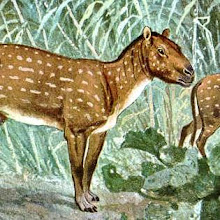
Picture from http://www.geometer.org/costarica/anhinga.jpg
When you hear the name “Anhinga,” I would guess that it might not click with you, at least if you live in the Midwest. This is because they are not found in the Midwest, they are found in the Southeast, assuming you’re in the US, anyway. If you look at a complete range map, you will find that they are in Coastal Central America and a lot of Northern South America. If you look on the Cornell website, it won’t tell you much, it will give you the range map, though. You do see that it lives in the Marsh area, which could describe quite a few places in Florida, which is the only place I’ve seen it. Its diet is fish, typical of a bird in that area. It creates a nest out of shrubs, also good for that area and to get its food, it does surface diving, where, of course, it dives from the surface of the water. However, something makes this surface diver different from others. Have you ever heard the phrase “water off a duck’s back,” it means to take things in stride, but it came from the special coating that ducks have that prevents their feathers from getting wet. Unlike most surface divers, Anhingas don’t have that coating. For birds that eat fish that don’t have the covering, like the bald eagle, they can either use their talons to snatch it from the top of the water or take it from another bird. I bet that you doubt an Anhinga could do either of those by just looking at its picture, but you do notice something else, its wings are spread out. This bird can not get water off with oil like the duck can, so it fans its wings to dry them off instead.
The anhinga has another name “the snake bird.” If you look at it, its neck does make it look somewhat snakelike. When we went on the trip, my mother looked outside and thought, she saw a snake, it was an anhinga, we all know about birds, by the way, so she knew what an Anhinga was.
I’m not sure if this post was very good, but I needed a topic… but I think I did well considering how bad it could have been.
When you hear the name “Anhinga,” I would guess that it might not click with you, at least if you live in the Midwest. This is because they are not found in the Midwest, they are found in the Southeast, assuming you’re in the US, anyway. If you look at a complete range map, you will find that they are in Coastal Central America and a lot of Northern South America. If you look on the Cornell website, it won’t tell you much, it will give you the range map, though. You do see that it lives in the Marsh area, which could describe quite a few places in Florida, which is the only place I’ve seen it. Its diet is fish, typical of a bird in that area. It creates a nest out of shrubs, also good for that area and to get its food, it does surface diving, where, of course, it dives from the surface of the water. However, something makes this surface diver different from others. Have you ever heard the phrase “water off a duck’s back,” it means to take things in stride, but it came from the special coating that ducks have that prevents their feathers from getting wet. Unlike most surface divers, Anhingas don’t have that coating. For birds that eat fish that don’t have the covering, like the bald eagle, they can either use their talons to snatch it from the top of the water or take it from another bird. I bet that you doubt an Anhinga could do either of those by just looking at its picture, but you do notice something else, its wings are spread out. This bird can not get water off with oil like the duck can, so it fans its wings to dry them off instead.
The anhinga has another name “the snake bird.” If you look at it, its neck does make it look somewhat snakelike. When we went on the trip, my mother looked outside and thought, she saw a snake, it was an anhinga, we all know about birds, by the way, so she knew what an Anhinga was.
I’m not sure if this post was very good, but I needed a topic… but I think I did well considering how bad it could have been.

No comments:
Post a Comment